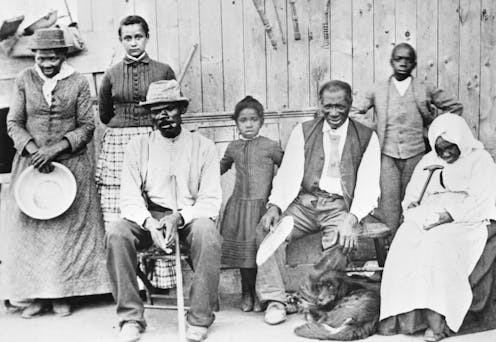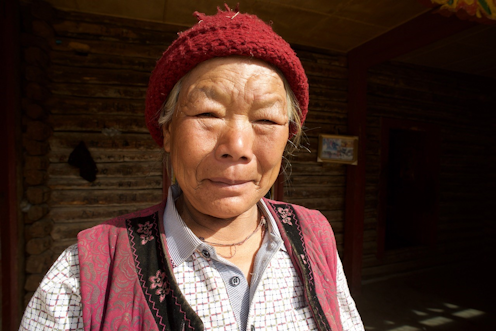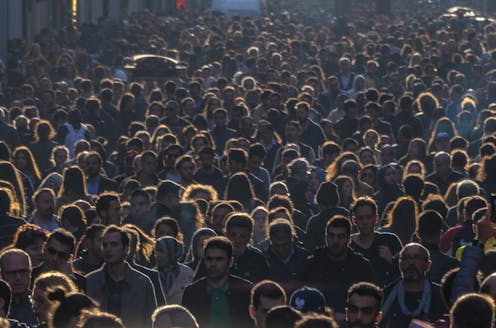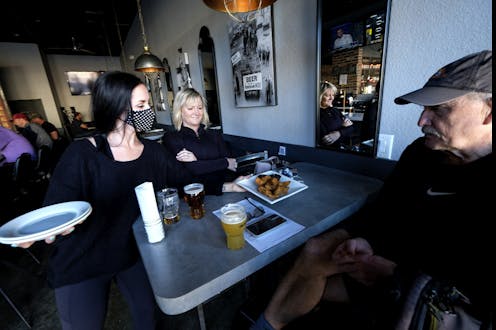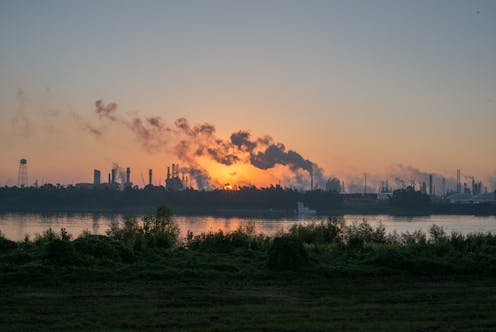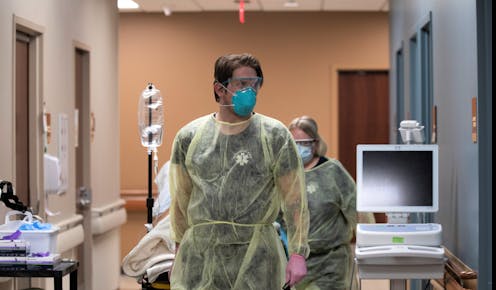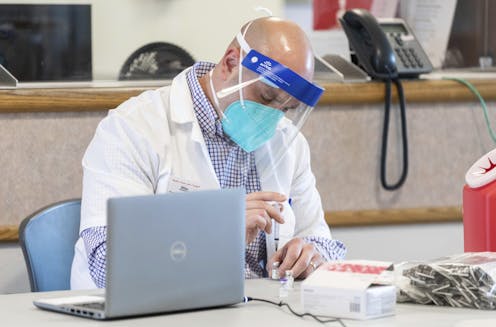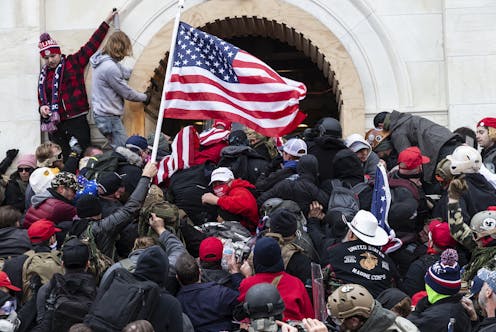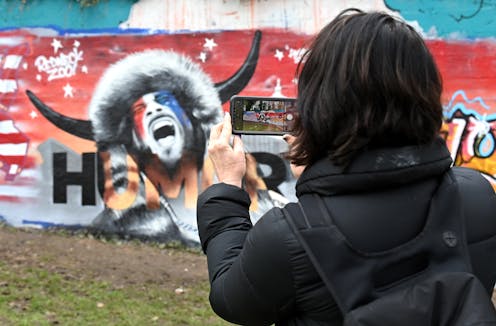The body's fight against COVID-19 explained using 3D-printed models
- Written by Nathan Ahlgren, Assistant Professor of Biology, Clark University
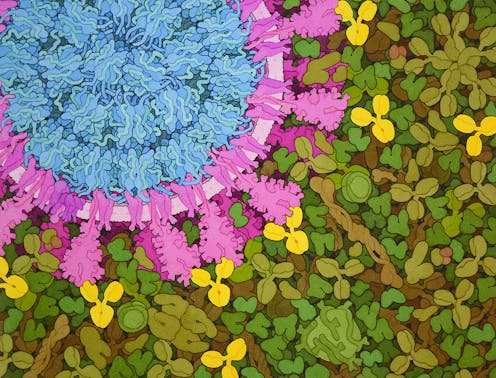 Neutralizing antibodies attach to the tips of the spike proteins of the SARS CoV-2 virus.David Goodsell/ProteinDatabase, CC BY-SA
Neutralizing antibodies attach to the tips of the spike proteins of the SARS CoV-2 virus.David Goodsell/ProteinDatabase, CC BY-SAEditor’s note: In this interview, Nathan Ahlgren, assistant professor of biology at Clark University, uses 3D-printed models to explain what proteins do in viruses, how they interact with human cells, how the...
Read more: The body's fight against COVID-19 explained using 3D-printed models


